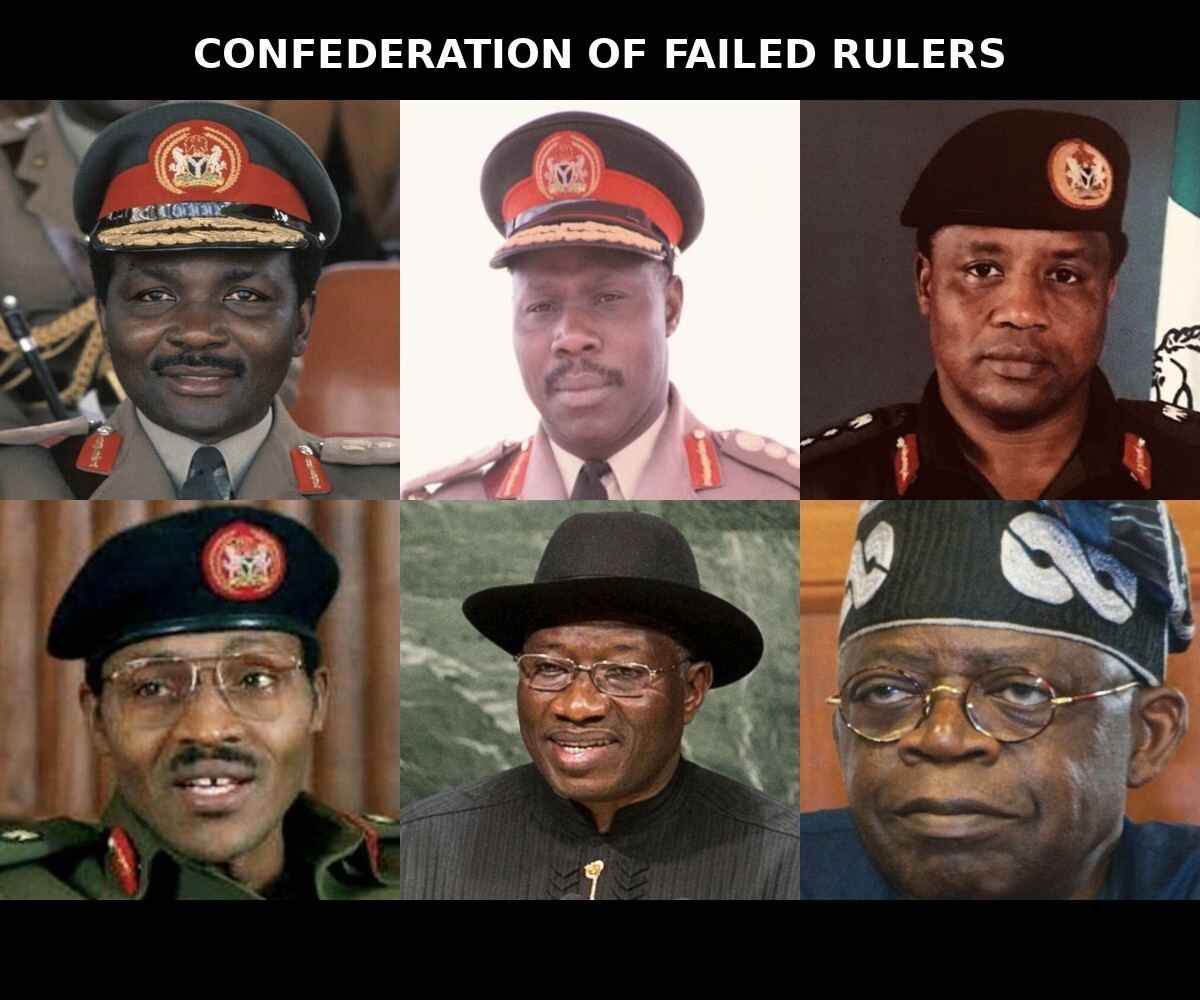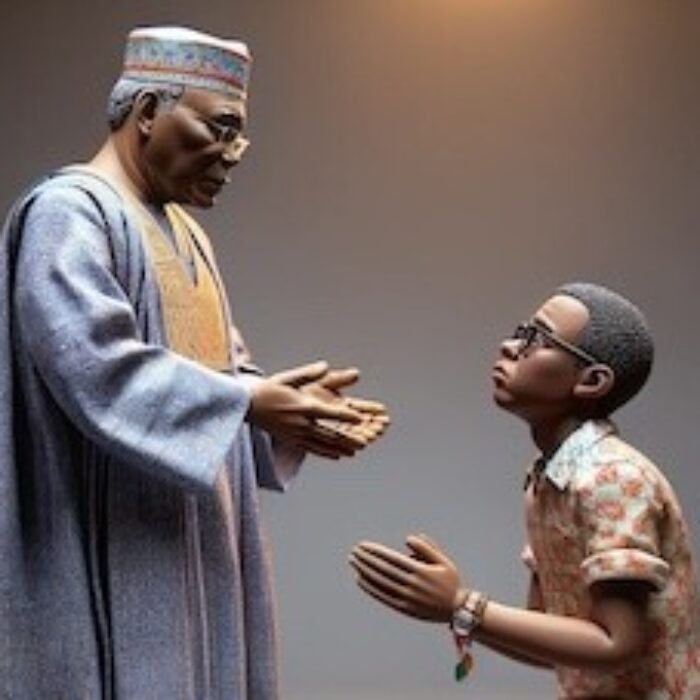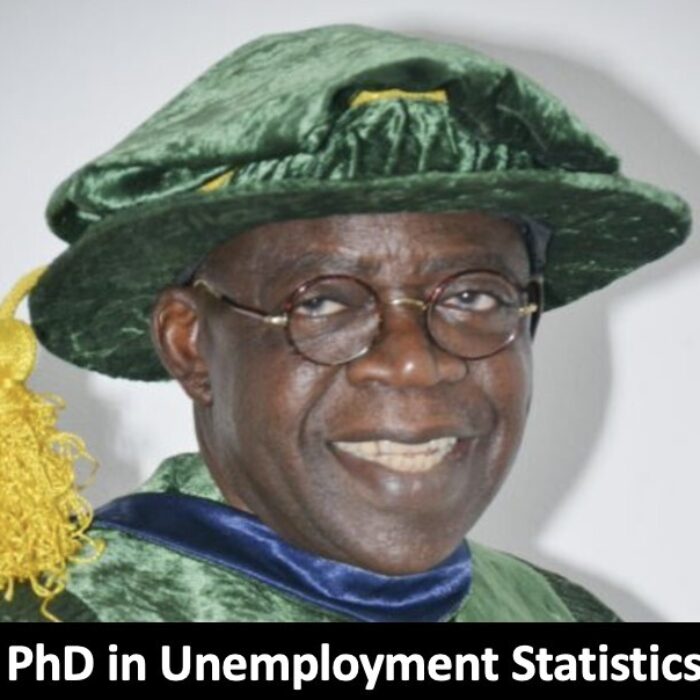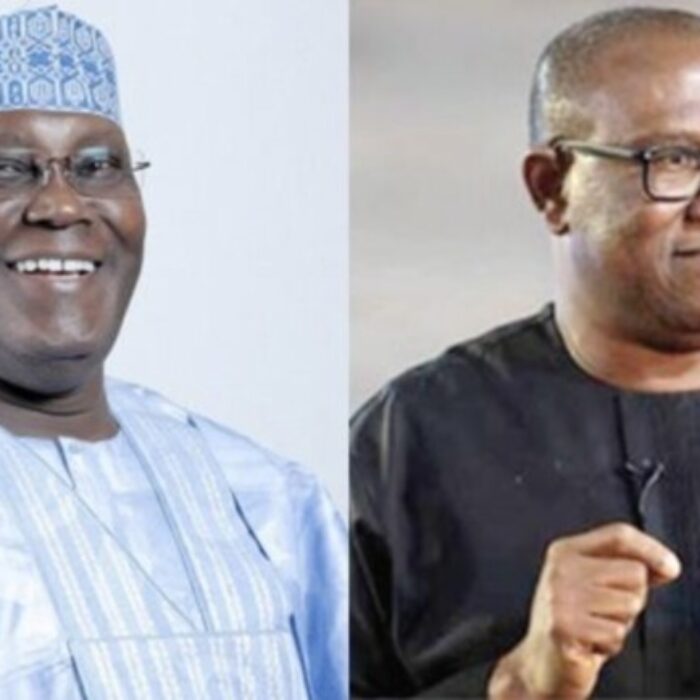By The Editorial Board
During the public presentation of former military President Ibrahim Babangida’s autobiography, A Journey in Service, which aired on Arise TV, former Vice President Yemi Osinbajo took the stage and began his speech (tap to listen to this speech) with a roll call—one that played like a grim obituary of Nigeria’s past and present failures.
With a check in tongue, he announced the presence of former and current Nigerian presidents or their representative, each name followed by a cold, ironic footnote on how they seized power—some as coup plotters, election nullifiers, others as dictators, and the rest as election fraudsters who forced their way into office against the will of the people.
There they sat, a gathering of men who, one after another, had hijacked Nigeria’s destiny, ruled with impunity, and left the country worse than they found it. Yet, instead of remorse or reflection, they laughed—mocking the very nation they plundered and successively crippled, one administration after another, their voices dripping with the arrogance of men who know they will never be held accountable.
This was a deeply tragic and unsettling confederation of the very men who have systematically ruined Nigeria. It was a disturbing spectacle, a reminder that those responsible for Nigeria’s decades of decline continue to revel in their unchecked impunity.
From Gowon, Babangida, Obasanjo, Buhari (represented), Jonathan, and Tinubu—it felt like a gathering in celebration of their own legacy of failure, basking in the destruction they have collectively left behind.
The response from Nigerians has been overwhelmingly harsh, with many expressing outright disgust. Some even went as far as to say that if the earth had opened up beneath them, swallowing the entire building for the world to see, Nigerians wouldn’t care—a damning reflection of just how deeply these men have alienated and failed the very people they once ruled.
Each, in their time, had the opportunity to steer Nigeria toward greatness, yet collectively, they have left a nation struggling under the weight of their misgovernance, corruption, and misplaced priorities. Collectively, this gathering of failure has wasted an estimated $400 billion of oil revenues since 1966.
By almost every critical measure—economic stability, security, infrastructure, governance, and quality of life—Nigerians are worse off today than they were before 1966. While some progress has been made in areas such as education, healthcare, and technology, these gains have been vastly overshadowed by corruption, mismanagement, and systemic failure.
Before 1966, Nigeria had a thriving economy built on agriculture, solid regional governance, and a relatively stable currency. The groundnut pyramids of the North, cocoa plantations in the West, and palm oil exports in the East made Nigeria an economic powerhouse in Africa. The Nigerian pound was stronger than the U.S. dollar, and there was less dependence on foreign aid and debt.
Today, Nigeria has gone from paragon to pariah. Nigeria is trapped in an economic crisis. The naira has collapsed, inflation is at record highs, and the country is one of the most debt-burdened in Africa.
Despite earning over $1 trillion (AMJ analysis) in oil revenue since the 1970s, Nigeria remains one of the poorest countries in the world, with over 133 million people living in multidimensional poverty. Unemployment and underemployment have skyrocketed, and public infrastructure remains in shambles.
This is the legacy of failure represented in the room—a gathering of men who have presided over decades of squandered wealth, systemic corruption, and relentless mismanagement.
They built nothing of lasting value, failed to invest in the people, and left a nation drowning in poverty, insecurity, and economic ruin. Their policies and decisions have condemned generations to hardship, yet they sit comfortably, laughing, as if history will absolve them.
It felt like listening to a roll call of betrayal—leaders who, instead of building a prosperous and just society, have looted its wealth, crushed its dreams, and left generations in poverty and despair. Each of them, in his time, had a chance to steer Nigeria toward greatness.
Yet, what did they do? They enriched themselves, deepened ethnic and religious divisions, squandered national resources, and left the country weaker than they found it.
The audacity of their laughter is an insult to the millions suffering under their decades of misrule. To them, leadership was never about service—it was a business, a self-enrichment scheme, a game of power and privilege played at the expense of the people.
And now, they gather as elder statesmen, laughing as if history will be kind to them, as if their names will not be remembered for the corruption, impunity, and squandered potential they presided over.
IBB’s Attempt to Rewrite History
General Babangida has demonstrated commendable dedication to public service in his post-regime years, contributing positively to national discourse and offering guidance on governance. His efforts in this regard are noteworthy and deserving of recognition.
He will be remembered for completing the Third Mainland Bridge and relocating Nigeria’s capital to Abuja—two strategic projects that reshaped the country’s infrastructure and governance landscape.
However, his tenure as a military leader from 1985 to 1993 remains a significant aspect of Nigeria’s history, marked by reckless election nullification and ill-fated SAP program and policies that continue to influence the nation’s collective consciousness.
The lived experiences of the millions of Nigerians who endured suffering and loss under his regime must be honored and remembered, not erased or sanitized through revisionist narratives.
Nor his role in the annulment of the June 12, 1993, presidential election, an event that stands as one of the greatest betrayals of Nigeria’s democratic aspirations. The election, widely regarded as the freest and fairest in the nation’s history, was poised to return Nigeria to civilian rule.
Instead, General Babangida’s government nullified the will of the people who had elected Moshood Abiola, plunging the country into political chaos, widespread protests, and years of authoritarian repression.
The consequences of this single act were profound—it deepened public distrust in the electoral process, led to economic instability, and paved the way for the brutal dictatorship of General Sani Abacha.
Even today, the shadow of that annulment lingers over Nigeria’s democracy, as rigged elections, political manipulation, and disregard for the people’s mandate continue to define the nation’s governance.
In a recent development, Babangida has publicly acknowledged that Moshood Abiola won the June 12, 1993, presidential election. However, Babangida has yet to issue a formal apology for the annulment of the election.
His 420-page autobiography is yet another brazen attempt to rewrite history, manipulate reality, and whitewash his legacy. Far from an honest reflection, the book reads as a self-serving narrative carefully designed to downplay his role in institutionalizing corruption, annulling Nigeria’s freest and fairest election, and entrenching a system of impunity that continues to plague the nation.
His regime’s dark history cannot be whitewashed:
- The naira collapsed—from ₦1 to $1 in 1985 to about ₦22 to $1 by the time he left in 1993.
- Hyperinflation made basic goods unaffordable.
- Mass unemployment resulted from factory closures and layoffs.
- Nigeria’s industrial base crumbled due to an influx of cheap foreign imports.
- Public services deteriorated, leaving healthcare and education in ruins.
His regime plunged millions into poverty, sparking riots and protests across the country. It is widely regarded as one of the worst economic policies ever implemented in Nigeria, yet Babangida’s cronies and military elites benefited immensely from the crisis through massive corruption and fraudulent contracts.
No amount of historical revisionism can erase General Babangida’s direct responsibility for derailing Nigeria’s democratic progress at a critical moment in its history.
To Nigerians, this report card feels unsettlingly familiar even today under the Tinubu misrule.
By presenting himself as a misunderstood patriot, IBB tries to erase the economic collapse, political instability, and national betrayal that defined his reign. But no amount of revisionism can alter the truth.
Nigerians remember the devastating Structural Adjustment Program (SAP) that threw millions into poverty, the relentless political manipulations that deepened national divisions, and the climate of deception that became the hallmark of his administration.
A book may attempt to reshape perception, but history is written in the scars of those who suffered through it—and no amount of pages, no matter how carefully crafted, can erase that.
And yet, here they are—laughing, slapping each other on the back, and celebrating their own ruinous legacy. The audacity! They revel in their destruction of Nigeria as if it were some grand achievement, mocking the very people they have left in suffering.
These men should be held accountable for their policy failures and the devastation they have inflicted on the Nigerian people, not sitting in comfort, grinning like warlords celebrating the ruin they left behind.
Their laughter is an insult. It is a slap in the face to the millions of Nigerians struggling under the weight of their greed and failures. The suffering of the masses is their creation, and yet they gather—unrepentant, unashamed, and untouched by justice. Their time in power may have passed, but the consequences of their misrule will plague this country for generations.
History will remember them not as leaders, but as destroyers. And no matter how loudly they laugh, the cries of the people they have betrayed will forever drown them out.




